Even healthy eaters occasionally eat a less-than-ideal meal from time to time—whether it's grabbing a fast-food burger on a road trip or indulging that sweet tooth with a piece of candy. However, it's not just the obvious junk food in your diet that could be doing you serious harm; according to experts, there are countless dangerous foods you're eating on a daily basis that could be causing serious harm to your body without you even realizing it. From popular proteins to "healthy" sweeteners, read on to discover which dangerous foods could be having a detrimental effect on your health.
Wild mushrooms
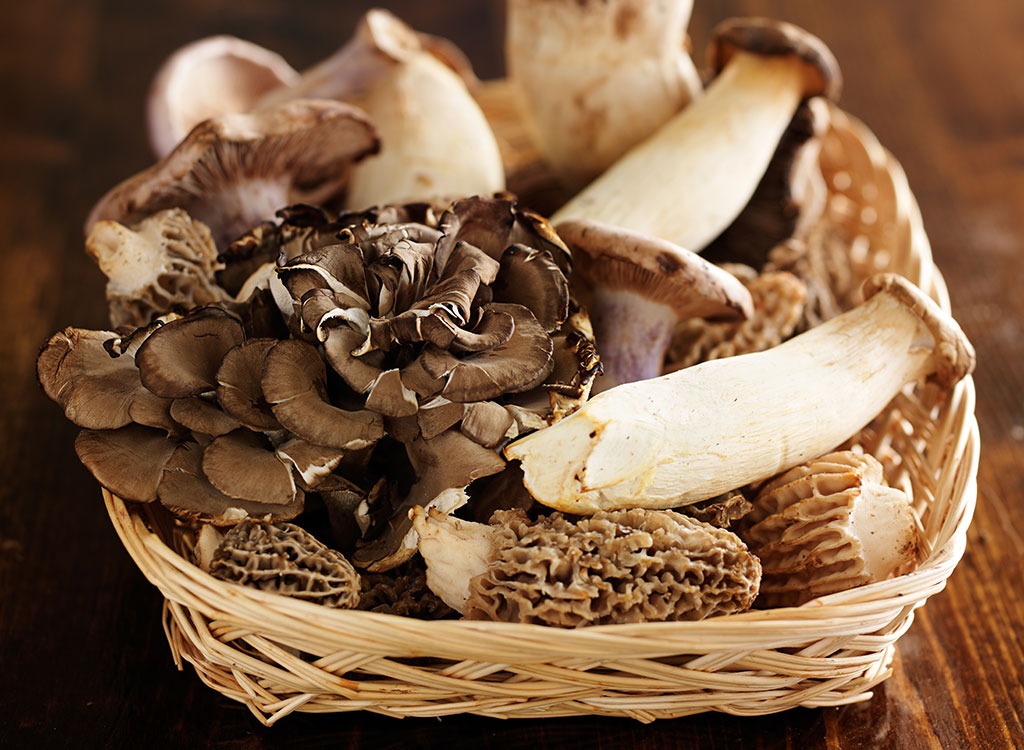
Sure, they may be natural—in some cases, even organic—but that doesn't mean those wild mushrooms you found are necessarily safe to eat.
"It can be extremely dangerous to eat wild mushrooms that you find outside in nature. Research shows that eating exotic mushrooms causes 100 deaths per year worldwide, and puts thousands in the hospital," says Heather Hanks, MS, a nutritionist at Instapot Life.
Hanks explains that so-called "death cap mushrooms" may be toxic to humans, but look almost identical to mushrooms you can buy in a grocery store.
Elderberries
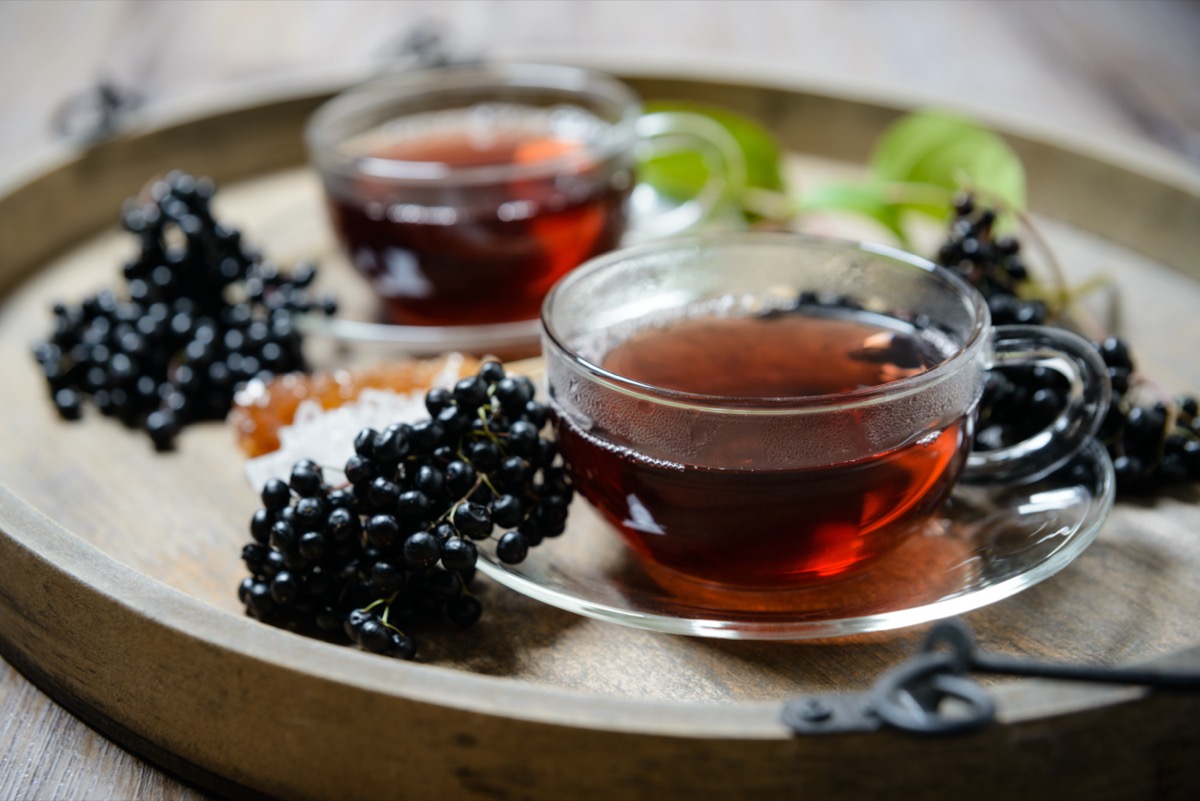
Though they may be popular in natural medicine for their supposed immune-boosting powers, elderberries could cause serious health issues for some people who consume them.
"If you eat underripe or undercooked elderberries you can experience nausea, diarrhea, and vomiting," says Chris Airey, MD, medical director at Optimale, who notes that people with autoimmune conditions and pregnant or breastfeeding individuals shouldn't consume elderberries at all.
Even if you don't have a pre-existing condition, "I caution anyone making homemade elderberry juice as it takes delicate preparation from someone knowledgeable in foraging and traditional medicine," says Airey.
Nutmeg

A little bit of nutmeg goes a long way—too much of this spice could set off devastating consequences for your health.
"It takes only 2 to 3 teaspoons [of nutmeg] to be lethal," says Airey. "This is because of myristicin, a toxin that can cause hallucinations, psychosis, and even death."
Tuna
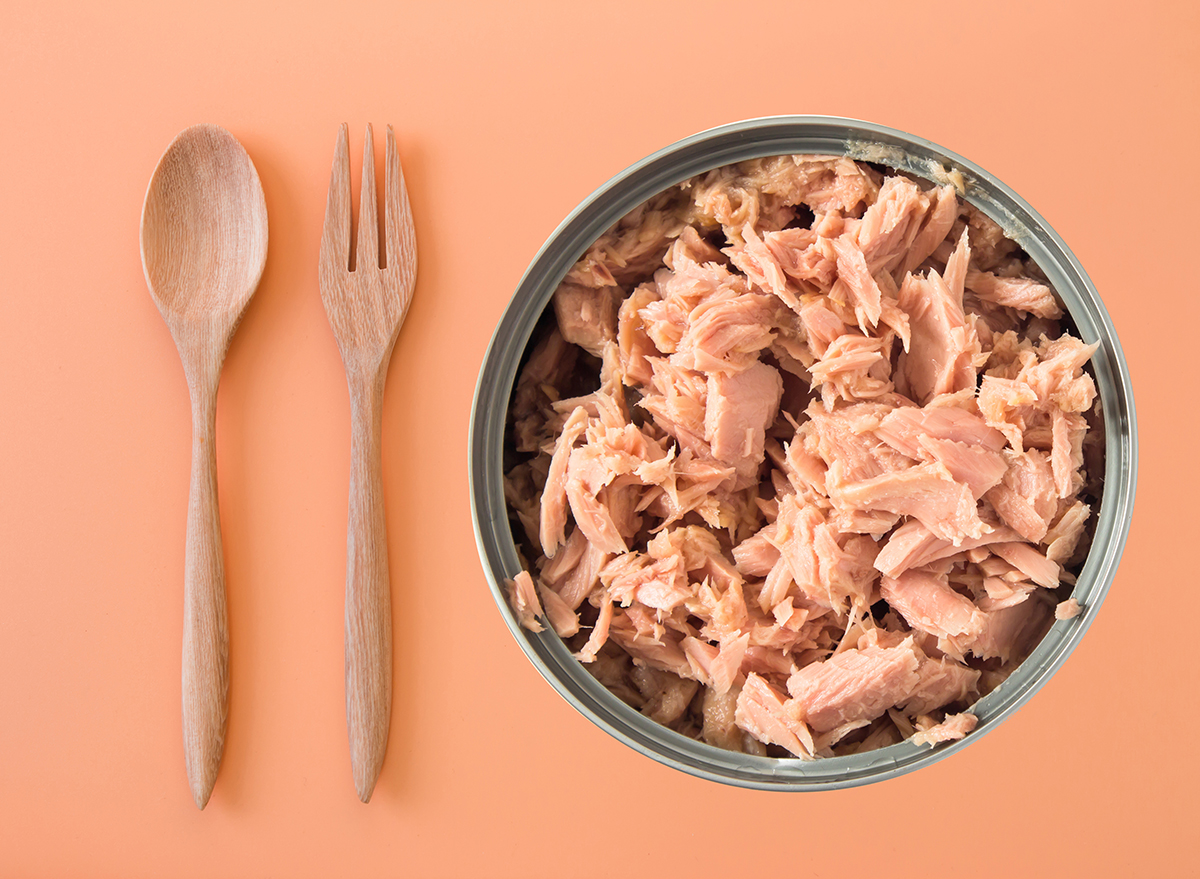
Tuna is loaded with filling protein and anti-inflammatory omega-3 fatty acids, but eating too much could have severe consequences for your health.
"Tuna contains potentially toxic levels of heavy metals like mercury," explains clinical nutritionist Stephanie Gatschet, MS, CNC, owner of BioVie Nutrition. "Consuming a lot of tuna can put you at risk of damaging your kidneys and nervous system, or can interfere with brain development in a growing fetus."
While tuna is still healthy for you to eat, just make sure to not go overboard and keep within the proper portion size.
Sushi
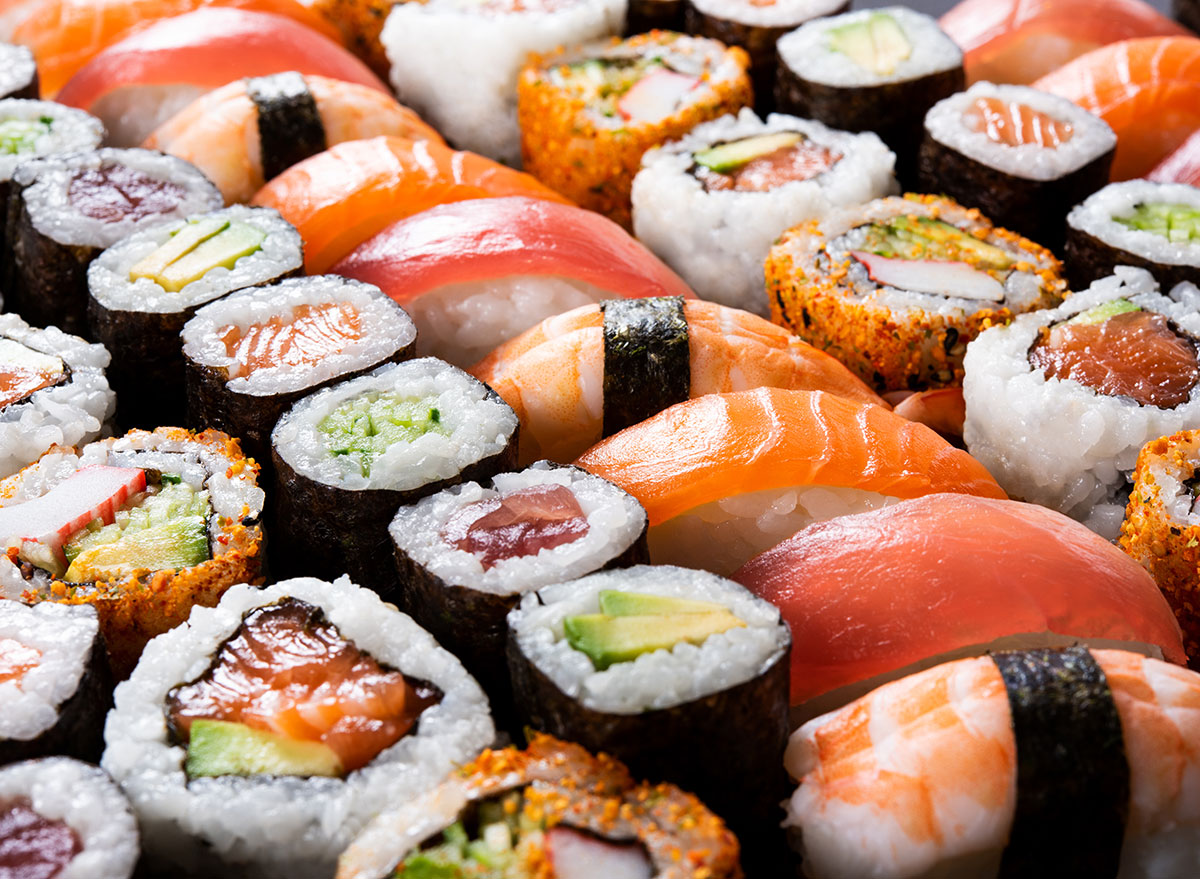
Your favorite Japanese takeout meal may pose a serious risk to your health, experts say.
"Many fish are hosts to parasites that can pass to the human digestive tract when these fish are eaten raw, and because they aren't cooked, raw fish is also a potential source of salmonella or other harmful bacteria," says Gatschet.
Baked Potatoes

It's not just that bloody steak on your plate that could put your health in jeopardy—that baked potato next to it could be a source of seriously scary bacteria, too.
"Botulism is a spore-forming bacteria that is very dangerous if consumed. It can grow in common foods like inadequately cooled baked potatoes," explains nutritionist Lisa Richards, author of The Candida Diet.
"When potatoes are cooked and not allowed to cool properly in the presence of oxygen, this dangerous bacteria can form. Because clostridium botulinum (botulism) forms a spore and is resistant to heat, it is unable to be killed in the cooking process."
Honey
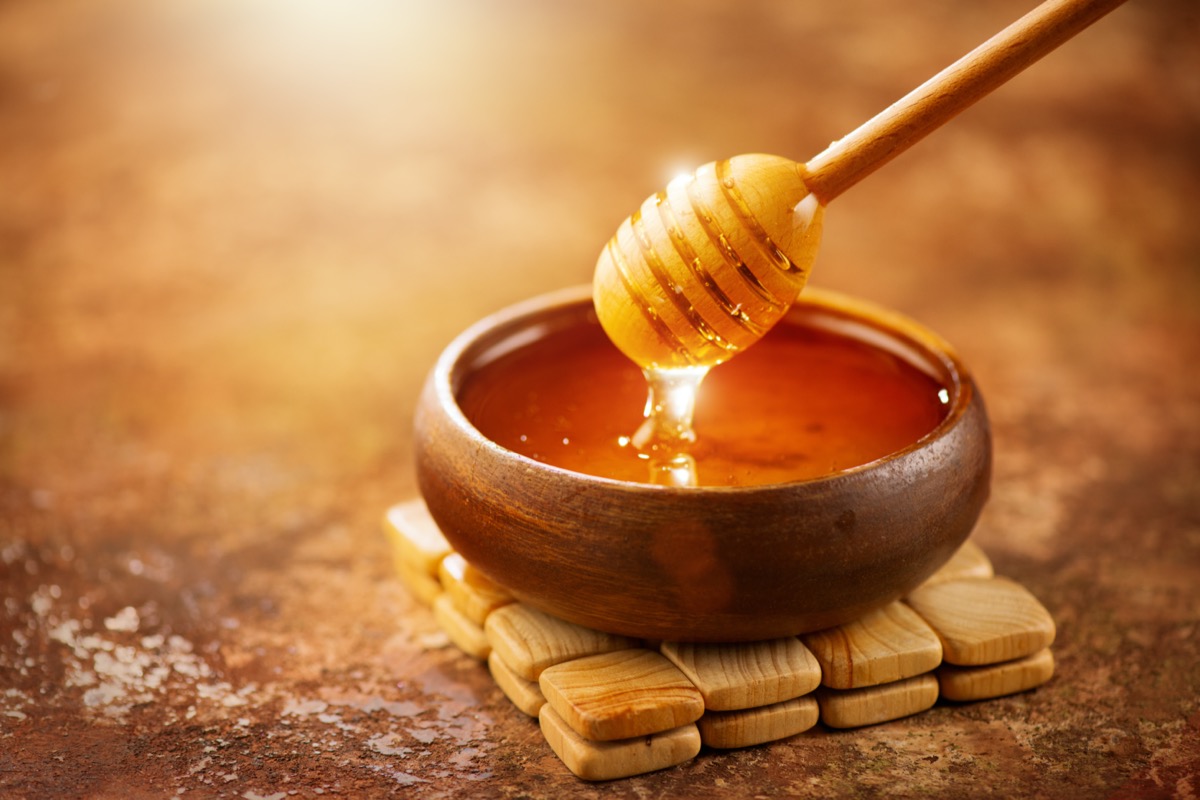
Baked potatoes aren't the only food that could be putting you at risk for botulism, however. Honey is another one of the dangerous foods that could contain botulism.
"Honey can contain bacteria spores due to the low amount of processes it goes through from its original form," says Richards. "Botulism spores can be among these bacteria found in honey," she explains, noting that this is why doctors recommend that caregivers avoid feeding honey to infants, whose immune systems are typically weaker than those of their adult counterparts.
No comments:
Post a Comment